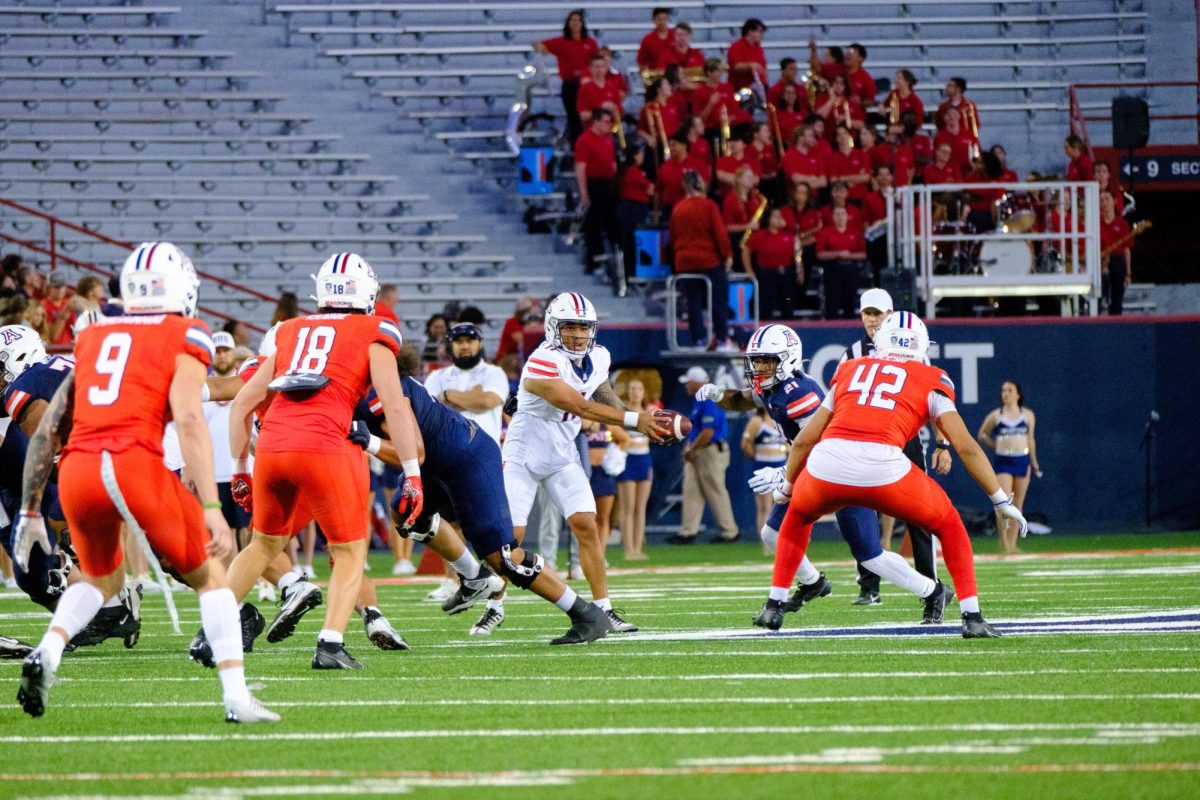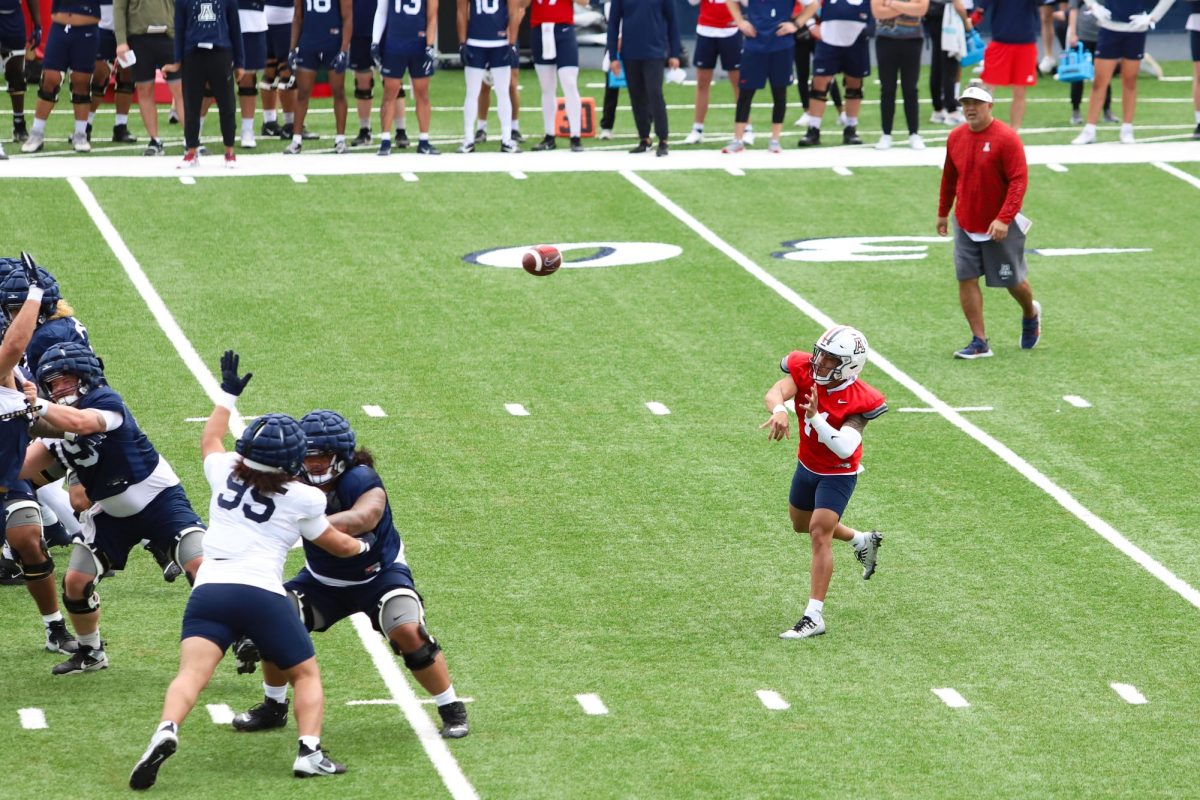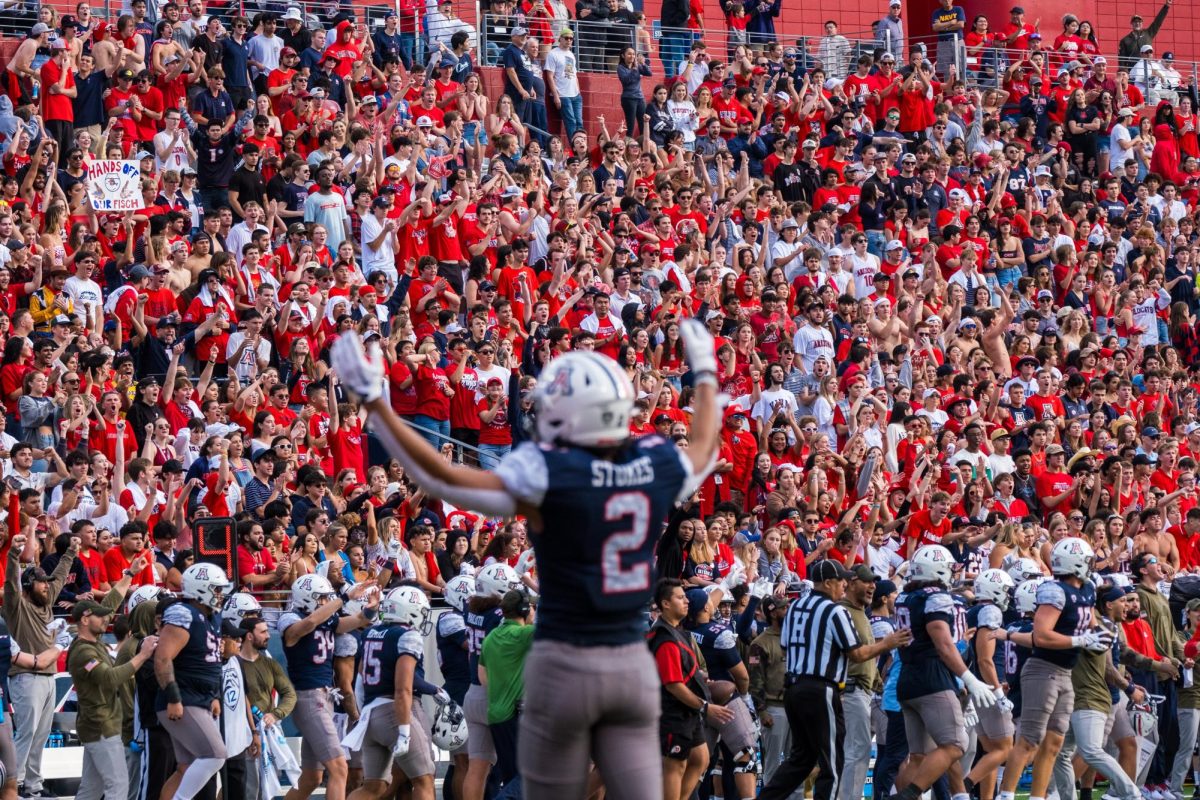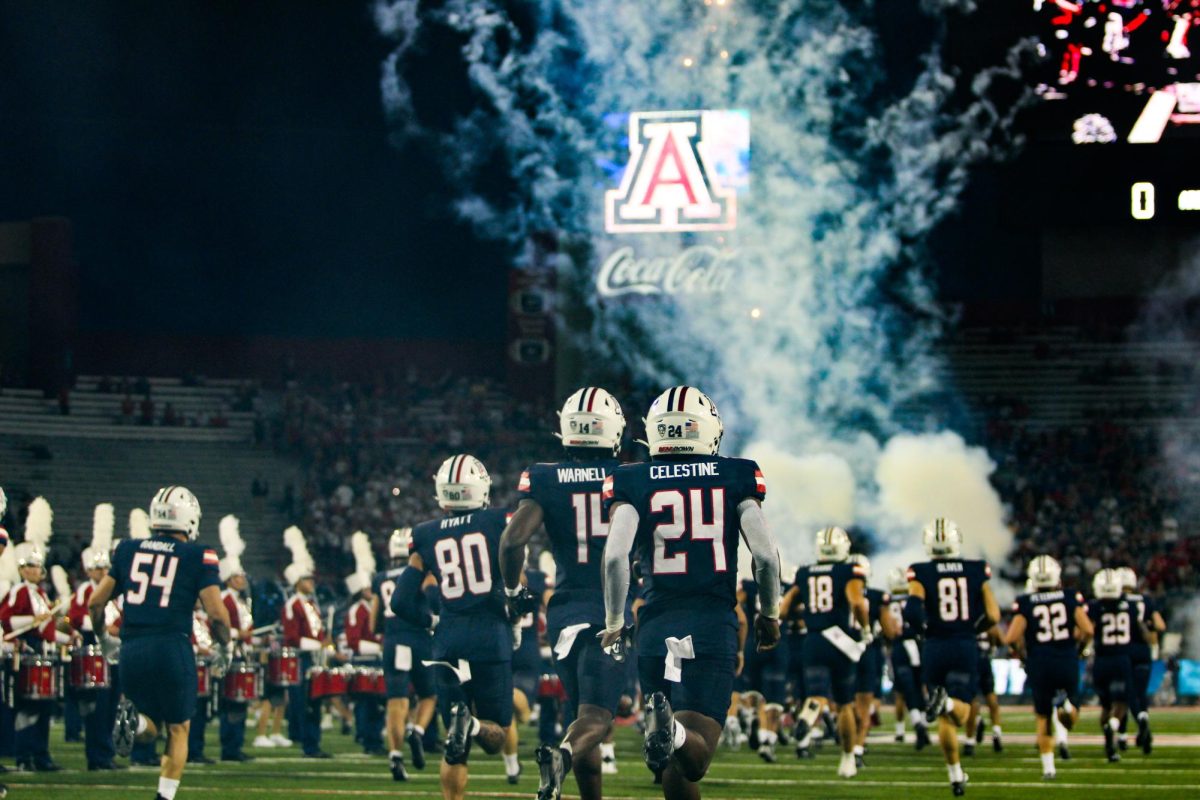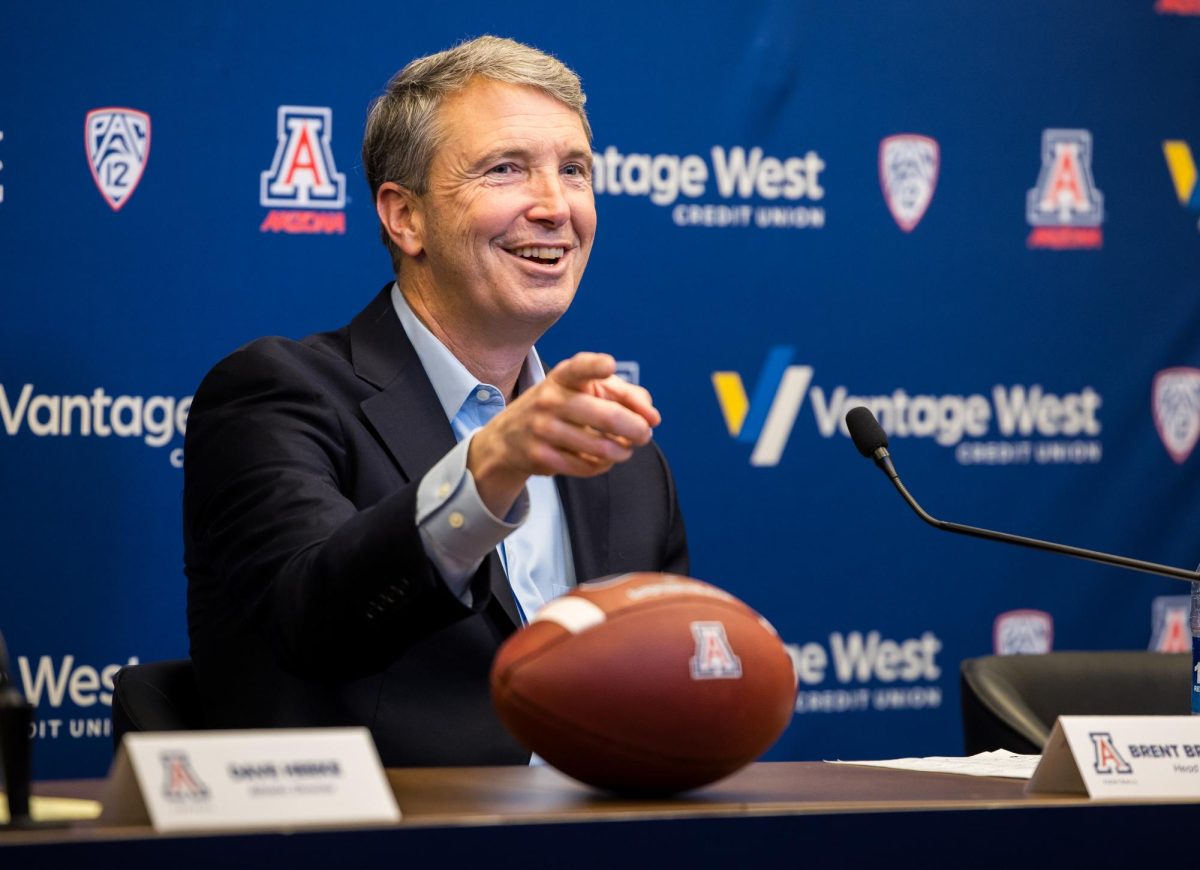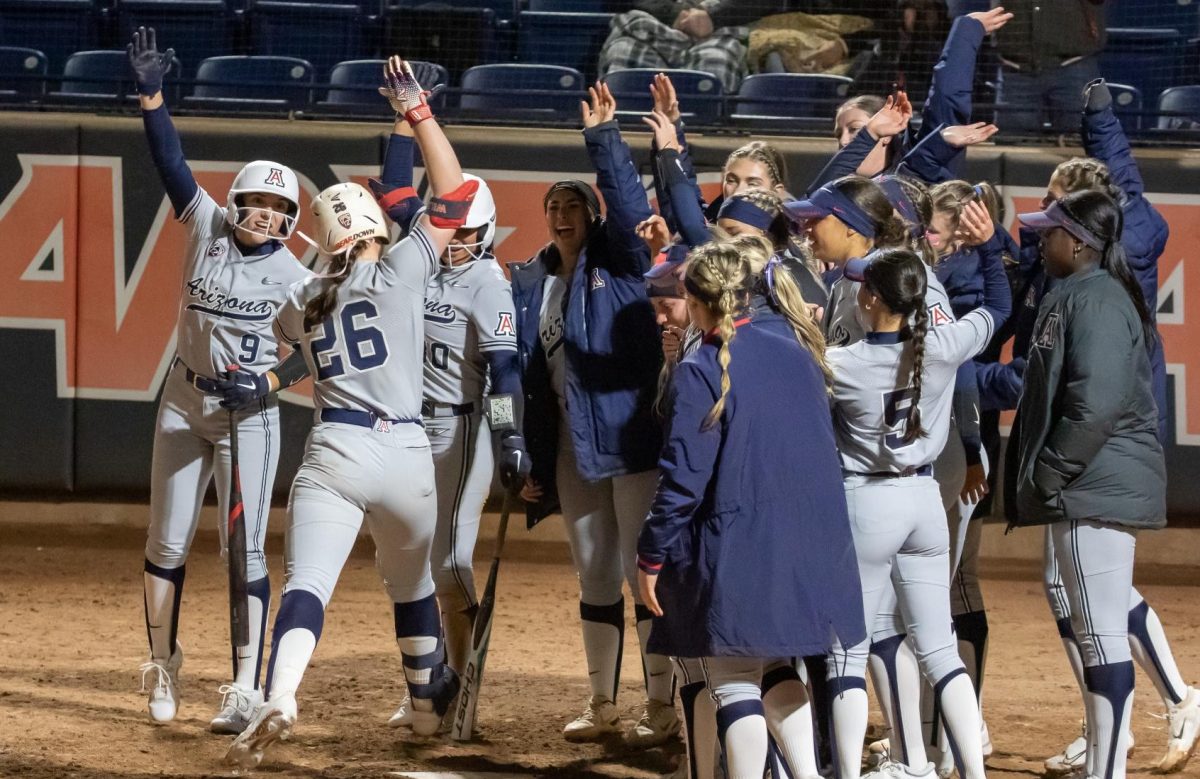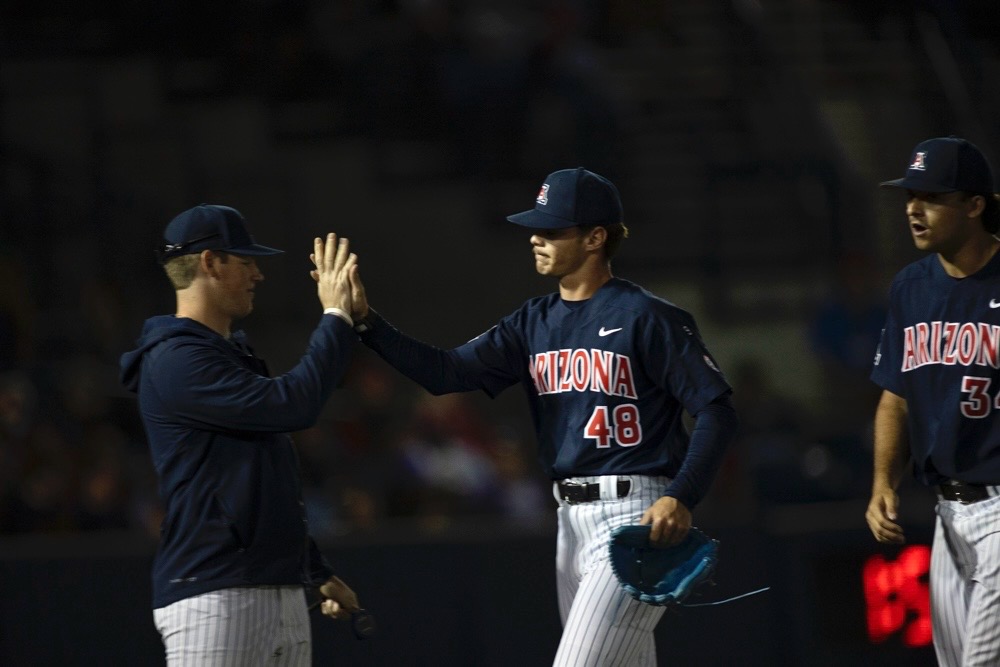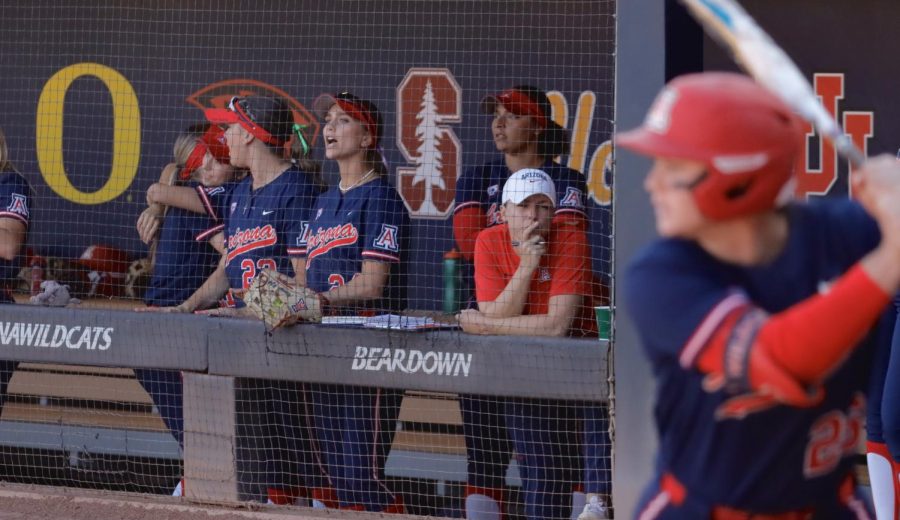Arizona receiver Juron Criner currently spends his Saturdays making improbable catches, torching cornerbacks and leading the Pacific 10 Conference in nearly every receiving category.
But football wasn’t Criner’s first love.
“”It was basketball,”” Criner said. “”I was a straight-basketball guy.””
Rather than spend all of his time practicing his routes, Criner was on the hardwood working on his jump shot, isolations and dunk attempts.
The 6-foot-4 junior spent four years sporting No. 21 for Canyon Springs High School in Las Vegas, and had dreams of playing college hoops.
Criner was a standout for the Las Vegas Rebels club team in the nation’s hotspot for Amateur Athletic Union basketball tournaments. He started at forward for the Rebels and played in the now extinct Cactus Classic at McKale Center.
But the offers to take his basketball talents to the collegiate level weren’t there, and the option to play receiver at a big-time school was.
“”I wasn’t getting as much recognition for basketball as I was for football, so I had to go with the better choice,”” Criner said. “”I talked to my family and a lot of people, and we all felt like football would be the best choice and obviously it was the best decision.””
Playing receiver rather than small forward was clearly the right decision for Criner, who’s emerging as one of the top wideouts in college football and one of Arizona’s best ever.
“”He’s the most complete player — we’ve had some other guys that obviously play as hard and fight like he does, but he’s your prototypical receiver that can go out there and dominate a game,”” said head coach Mike Stoops. “”I don’t know if we’ve had many guys that can dominate a game like he can.””
Although he now dons a helmet, cleats and shoulder pads rather than a headband and sneakers, glimpses of his basketball talent are on display every Saturday when he skies to snare a Nick Foles bomb.
Remember the 51-yard catch against California that set up Criner’s game-winning touchdown? Remember the countless fade routes-turned-touchdowns over the last few seasons?
Criner credits basketball, where grabbing rebounds or snatching alley-oops aren’t far off from elevating to haul in a Foles jump ball.
“”I think it has a lot to do with my receiver skills, being able to track the ball when it’s high in the air, the precision, timing of the jump,”” Criner said. “”I feel like my basketball background has a lot to do with the receiver I am today.””
Arizona outside receivers coach Dave Nichol said multi-sport athletes have a leg up on other recruits, especially basketball players who have great potential at receiver.
San Diego Chargers tight end Antonio Gates is the most famous example, as he played power forward at Kent State University and has developed into one of the NFL’s top tight ends without a down of college football. Nichol cited San Francisco 49ers receiver Michael Crabtree as another example of the basketball to football transition.
“”Michael Crabtree was basically, most people thought, a better basketball player out of high school,”” said Nichol, who also played wide receiver for the Red Raiders. “”He played quarterback in high school and caught one ball his entire career. So you know you always have to kind of project what they might do. That’s not easy, but it’s definitely worked out for Juron (Criner).””
Criner caught more than one ball for Canyon Springs High School and was a three-star recruit with offers to Oregon, Nebraska and ASU among other schools. But there’s no question he wouldn’t be nearly the receiver he is today without the years of catching alley-oops and jumping to grab a rebound at its highest peak.
“”He’s just got such good ball skills, and his timing on catching the ball is really good. I would imagine that comes from basketball,”” Nichol said. “”He’s just got a knack for figuring out when to get the ball.””
When Criner leaves Arizona as one of its best receivers in program history and turns that into millions in the NFL, he’s never going wish he played basketball instead. But despite that success and the future millions, Criner will always wonder what would have happened if he stuck with his first love.
“”I try to stay away from it as much as I can, but I think about going to play all the time,”” Criner said. “”There are nights when I wonder what my life would be like if I would have chose basketball, and where I would have went and just different things like that.””




